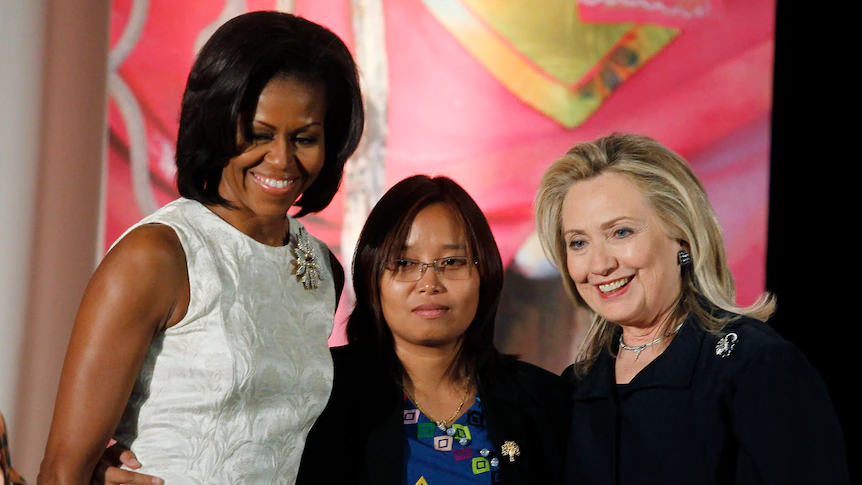Chris Sidoti quoted by ABC News Australia
3 December, 2021
By Stephen Dziedzic
Myanmar’s military junta has revoked the passports of dozens of its leading opponents — including senior ministers in the civilian National Unity Government (NUG) and several high-profile pro-democracy activists — in an apparent attempt to stop them travelling and campaigning against the February 1 military coup.
The documents list the names of almost 70 Myanmar citizens.
They include several prominent Myanmar civilian politicians and anti-junta dissidents — including the NUG Foreign Affairs Minister Zin Mar Aung and leading National League for Democracy lawmaker Aung Kyi Nyunt — along with their personal details and passport numbers.
The missive says the “following Ordinary Myanmar Passports have been declared null and void”.
“The embassy, therefore, would like to request to consider the above mentioned passports as cancelled and shall not be recognised if presented.”
Human rights lawyer and member of the Special Advisory Council to Myanmar, Chris Sidoti, told the ABC that some of those on the list were currently in Myanmar, while others were overseas.
It’s not clear if any of the people listed are currently in Australia.
Mr Sidoti said the documents provided clear evidence that the military junta was trying to stop its opponents from moving around the world to advocate for democracy or build up diplomatic support for the alternative civilian government.
“I think it’s quite clear that this is an attempt to stop people from travelling, from being able to access Western countries and Western media,” he said.
“Why else would you withdraw passports if the intention were not to prevent people from travelling?”
“This is quite consistent with all the attempts of the military since the coup to silence any voices of opposition or dissent — or simply those calling for democracy.”
The documents have drawn a contemptuous response from the NUG.
Its human rights minister Aung Myo Min told the ABC the military had previously used similar tactics to try and convince other countries to hand over political dissidents from Myanmar.
“In 1988 (after a major uprising) they did the same thing. Many of the Myanmar activists were stateless and had a hard time travelling around the world and advocating with the international community,” he said.
He said any governments that had received the diplomatic notes – including the Australian government — should simply ignore them.
“The military is not the government of Myanmar. It’s not even the de-facto government. They illegally staged an attempted coup, but we are the legitimate government. This is an illegal act and tactics by the military.”
He told the ABC the attempt to stop people from travelling was unlikely to be successful, but the episode highlighted why the Australian government should formally recognise the NUG as the rightful government of Myanmar, and expel the diplomats currently in the embassy.
“The fact they are circulating these lists is proof positive that these diplomats represent the military, and the military is not the legal government of Myanmar,” Mr Sidoti said.
“If this is the way these diplomats are going to conduct themselves they do not deserve to be treated as representatives of Myanmar.
“The National Unity Government has already appointed a representative to Australia. That representative should be considered the representative of the state of Myanmar in this country.”
It’s not the first time the Myanmar embassy has come under fire for its actions since the coup on February 1.
Pro-democracy activists in the Myanmar community of Australia have lashed the diplomats in the embassy for not defecting — unlike some other Myanmar officials at overseas posts — in the wake of the military seizing power.
In June Myanmar students groups accused the embassy of intimidation after it sent notes to government scholars in Australia demanding they pledge loyalty to the junta.
The federal government has repeatedly pressed Myanmar’s military to free political prisoners, cease violence against protesters and restore civilian rule.
It’s also redirected aid money away from the military, suspended cooperation programs with the Tatmadaw, and thrown is weight behind the efforts of ASEAN — the peak diplomatic body in the region – to resolve the crisis.
But it has so far resisted calls from activists to apply fresh sanctions to the leaders of the military coup, frustrating many in the Myanmar diaspora.
The ABC repeatedly contacted Myanmar’s embassy in Canberra seeking comment, but it has not responded to questions.


